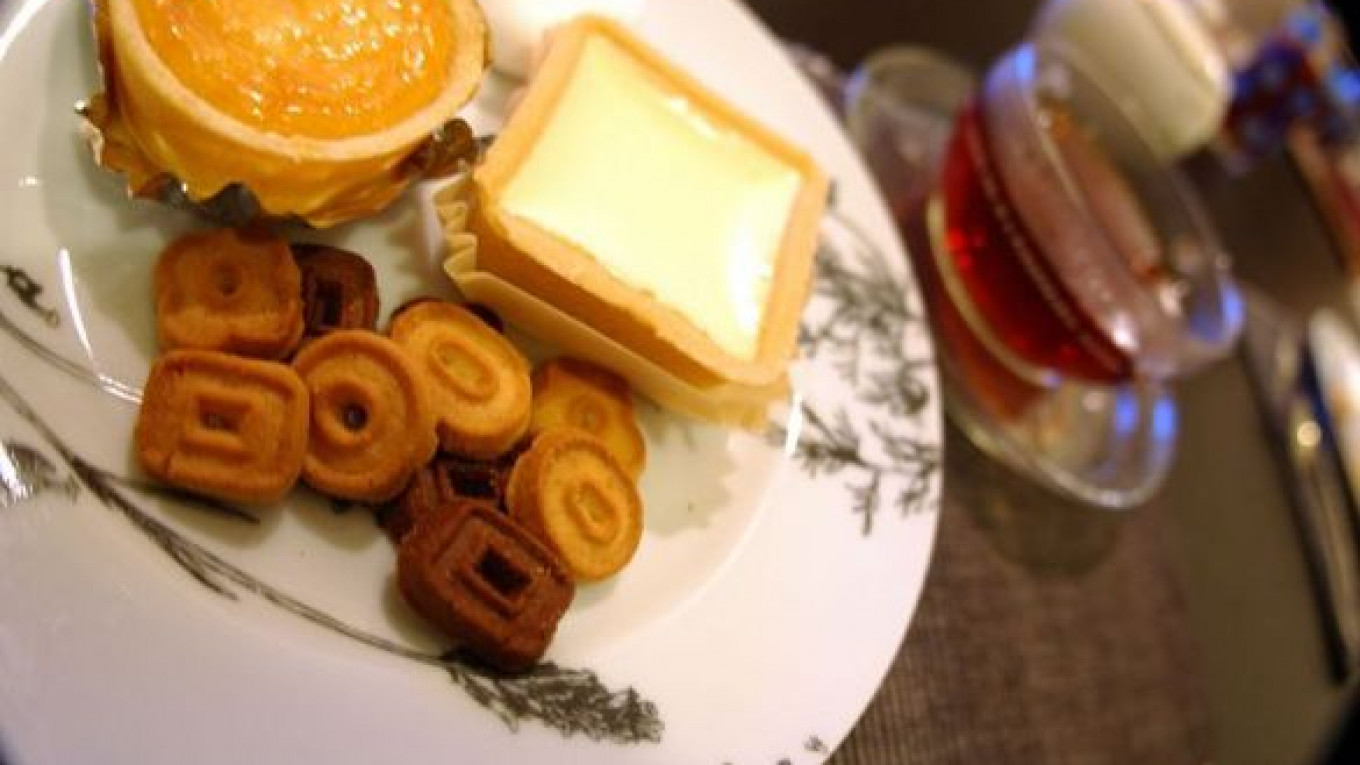Купи сыру: buy some cheese
We'll pause in our round-the-clock pre-Olympic, "is-Sochi-ready?" count-down to the Games for a small commercial break. That means you get off the couch, stretch and head for the kitchen. Что ты хочешь? (What do you want?), you ask your significant other. Чаю? Коньяку? Шоколаду? (Some tea? Some cognac? Some chocolate?)
How charming to offer to get your companion something to eat. How clever of you to use the partitive case.
The what?
You'll be forgiven if you missed this in your Russian language lessons. Called in Russian родительный частичный падеж (the genitive partitive case), it is a nifty way of indicating some or part of something. With most nouns it is just the standard genitive case endings and means some, a little, part of whatever is being discussed. For example, a teenager heading to the mall to buy a pair of glasses might approach a parent with a hand extended and the phrase: Дай денег на очки! (Give me some money to buy glasses). That is the partitive case. But if said teenager has already ordered the glasses and knows the exact price, the request would be: Дай деньги за очки (give me the money for the glasses).
This might be one of those arcane bits of Russian grammar that you file away and figure no one will notice if you get it wrong. That is fine. Except for a list of about a hundred Russian words — all masculine gender — that have a special partitive ending: -у or –ю in the singular. Recognizing them is important. Using them makes you sound less like you just got off the boat clutching your Russian-English dictionary. The -у/-ю partitive forms are a little like Dr. Who's bowties: a little old-fashioned, a little dorky, but cool.
Besides, you probably hear or use these forms every day in the kitchen: чаю (some tea); шоколаду (some chocolate); сыру (some cheese); сахару (some sugar); супу (some soup); чесноку (some garlic); and жиру (some fat, grease). Or you might use them when you are knocking back some cold ones: коньяку (a little cognac); самогону (a bit of moonshine); спирту (some grain alcohol).
Я не прочь съесть горячего супу (I wouldn't say no to some hot soup). С утра принесли печеной картошки и даже сыру (This morning they brought some baked potatoes and even some cheese.) Я заказал шампанского, самого дорогого французского коньяку, каких-то неведомых блюд, ананасов, шоколаду. (I ordered some champagne, some of the most expensive French cognac, some dishes I've never heard of, and some pineapple and chocolate.)
Other nouns of this list you've used a thousand times in the partitive case, perhaps without noticing. Were there a lot of people at the rally? Народу в тот раз было меньше, чем обычно. (There were less people than usual this time.) Народу было очень много. (There were a lot of people.)
You've forgotten your lighter at a party, so you ask the guy next to you: Огоньку не найдётся? (Do you have a light, literally "some fire.") You've stopped at a gas station and tell the attendant: Налейте бензину (Give me some gas.) You've just woken up and turned on the weather report: За ночь снова навалило снегу (During the night we got a lot of snow again)
The best thing about this? It's optional. If you say навалило снега instead of навалило снегу, no one will mind. You just won't be as cool.
Michele A. Berdy, a Moscow-based translator and interpreter, is author of "The Russian Word's Worth" (Glas), a collection of her columns.
A Message from The Moscow Times:
Dear readers,
We are facing unprecedented challenges. Russia's Prosecutor General's Office has designated The Moscow Times as an "undesirable" organization, criminalizing our work and putting our staff at risk of prosecution. This follows our earlier unjust labeling as a "foreign agent."
These actions are direct attempts to silence independent journalism in Russia. The authorities claim our work "discredits the decisions of the Russian leadership." We see things differently: we strive to provide accurate, unbiased reporting on Russia.
We, the journalists of The Moscow Times, refuse to be silenced. But to continue our work, we need your help.
Your support, no matter how small, makes a world of difference. If you can, please support us monthly starting from just $2. It's quick to set up, and every contribution makes a significant impact.
By supporting The Moscow Times, you're defending open, independent journalism in the face of repression. Thank you for standing with us.
Remind me later.








